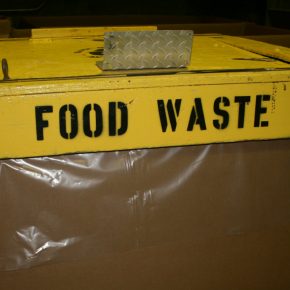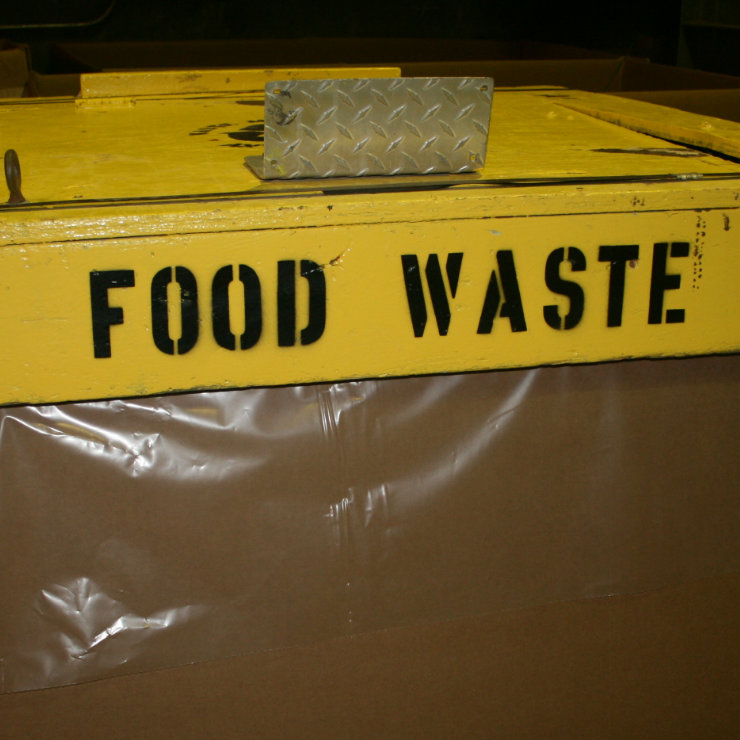Tydzień w gospodarce
Category: Trendy gospodarcze

(Eli Duke, CC BY-SA 2.0)
Let’s start with not a controversial example. He that has never thrown a lemon or kiwi peel or the leaves of beetroot, broccoli or radish to the bin, let him first cast the stone. If someone has, and regularly eats skin-less fruit or throws leaves of some vegetables away, then should know that by doing so, is “wasting” food, because both the fruit-peel and leaves are often edible (though of course not all of them). Moreover, they contain more nutritious ingredients. How can we justify food wasting? The answer is: with taste. Almost solely and exclusively.
We throw these things away because we don’t enjoy their taste. However, do we get any extra satisfaction from throwing away peels and leaves from fruits and vegetables that we like? Usually, we do not. Yet, we realize that buying cauliflower with leaves or lemons with their skins on them is almost an inevitable transaction. Fruit-peel and leaves is a certain cost of buying a product, because (as a rule) there is no alternative solution. And the taste is simply more important than the cost.
Once we consider the case from the point of view of the consumer’s taste, we can expand our rule to cover the consumers who throw food away (other than fruit-peel and leaves) and profit-minded vendors. People keep making the same “mistake” of overbuying food. This is a long-term action as people clearly want to make provision to be able to satisfy their taste preferences at any time. They always want to have at home more eating options to be able to choose from the home menu what suits them, and not to be limited. This is facilitated by the availability of various foods.
Such observations are, by no means, designed to defend or encourage further food waste . If people can predict accurately what they will want in a little while, all the better for them. You can, surely, promote and make people re-define their eating habits on a larger scale, but at the same time it is hard to deny the economic truth: the co-called “food waste” brings clear benefits to people. We understand the truth perfectly when we clean up the leftover party food. Trays, dishes and plates are rarely cleaned 100 per cent, which implies that too much was bought, and it will be “wasted” or not wasted but merely thrown into the bin. However, this food has perfectly fulfilled its role despite not being directly consumed, it ensured that options were available. Most event hosts prefer to make provision in the menu they prepare, making sure guests will not run out of food.
The issue becomes even clearer when we consider food catering on a commercial basis. Each kilogram of meat, vegetables or fruit thrown away by shops means that the opportunity to sell it has been lost. The food has been purchased with a view of increasing the shop’s turnover. This does not happen, so turnover from the sale of other goods also must suffice to pay the bill for the food that has been wasted. In other words, when we, the consumers, see food wasted in the back of the shop, we may think: by buying my own food, I am paying not only for my own food but also for the wasted food.
Despite this, the cost is factored in the business model, because the customers who enter the supermarket wish to have the option to choose from a variety of foods. For this reason, some of the food is dumped, which is the cost on the vendor side included in the economic calculation (therefore, the cost indirectly financed with the turnover). “Wasting” is therefore an inseparable part of helping to satisfy consumer needs. So, this is in fact not an economic “waste”.
The same situation was once observed with taxi cabs before the arrival of mobile phones with their applications. In the times of worse coordination, more drivers experienced downtime in their work. However, someone had to pay for the downtime anyway. A vacant taxi driver available for the customer at any time did not “waste” time, although he was not taking a run at the time. He constituted a regular feature of the business model in use which was hard to undermine. Until application innovation appeared, which allows taxi drivers to smooth out the downtime and make the matching of customers and drivers more effective and faster. This also helped reduce the prices of services offered to customers. And the more innovative service providers can drive customers away from those service providers who are slower in adapting to the changing business conditions.
Perhaps similar changes are implementable in the food industry. If someone found the way to better match the buyer’s tastes with available stocks, then shops would not have to buy extra food that is waiting for a potential customer. For the time being, this seems difficult albeit not impossible to imagine. If people get into an eating rut and know very well what, generally, their daily menu will be, then food waste would fall substantially. Until that happens, “food waste” plays a very important economic function and, is therefore, not genuine “waste”. Which, obviously, is not at odds with making people revise their eating habits.
Mateusz Machaj is an Associate Professor at the Warsaw University.

